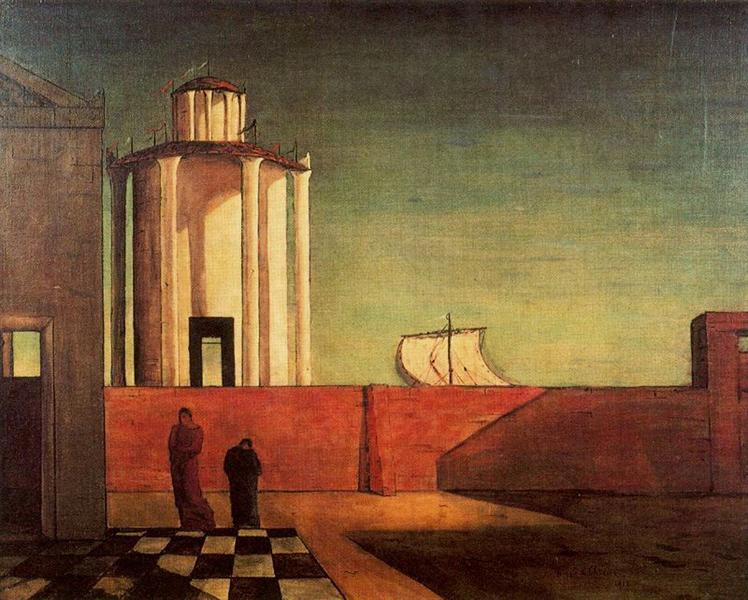“INTO CRIMSON DARK”
By:
October 2, 2024
A series dedicated to poems, published c. 1900–1935, the Radium Age sf-adjacent themes of which include: dystopia and utopia, far-out mathematics and the fourth dimension, Afro-futurism, catastrophe, future war, new technologies, scientific breakthrough, dehumanization, cosmic awe, disenchantment and unseen forces, unknowable aliens and singularity. Research and selection by Joshua Glenn; thematic index here.

Into crimson dark thou goest,
Thy vast orbits mock the eye.
Small the echo that thou throwest,
Far, I hear thy footfalls die.
Art thou near? — too far for greeting?
Lost in topless altitudes?
Shall I wait a sudden meeting
Where sonorous stillness broods?
In the solitude resounding
Distant footsteps echo free.
Is it thou who flamest, bounding
Circles of infinity?
— Not sure what year — but before the poet’s death in 1921. The preeminent symbolist and lyric poet of early-twentieth-century Russia, in his poetry Blok mercilessly extolled the disintegration of Russia.
From Russian Poetry: An Anthology, chosen and translated by Babette Deutsch and Avrahm Yarmolinsky (1927).
RADIUM AGE PROTO-SF POETRY: Stephen Spender’s THE PYLONS | George Sterling’s THE TESTIMONY OF THE SUNS | Archibald MacLeish’s EINSTEIN | Thomas Thornely’s THE ATOM | C.S. Lewis’s DYMER | Stephen Vincent Benét’s METROPOLITAN NIGHTMARE | Robert Frost’s FIRE AND ICE | Aldous Huxley’s FIFTH PHILOSOPHER’S SONG | Sara Teasdale’s “THERE WILL COME SOFT RAINS” | Edith Södergran’s ON FOOT I HAD TO… | Robert Graves’s WELSH INCIDENT | Nancy Cunard’s ZEPPELINS | D.H. Lawrence’s WELLSIAN FUTURES | & many more.
